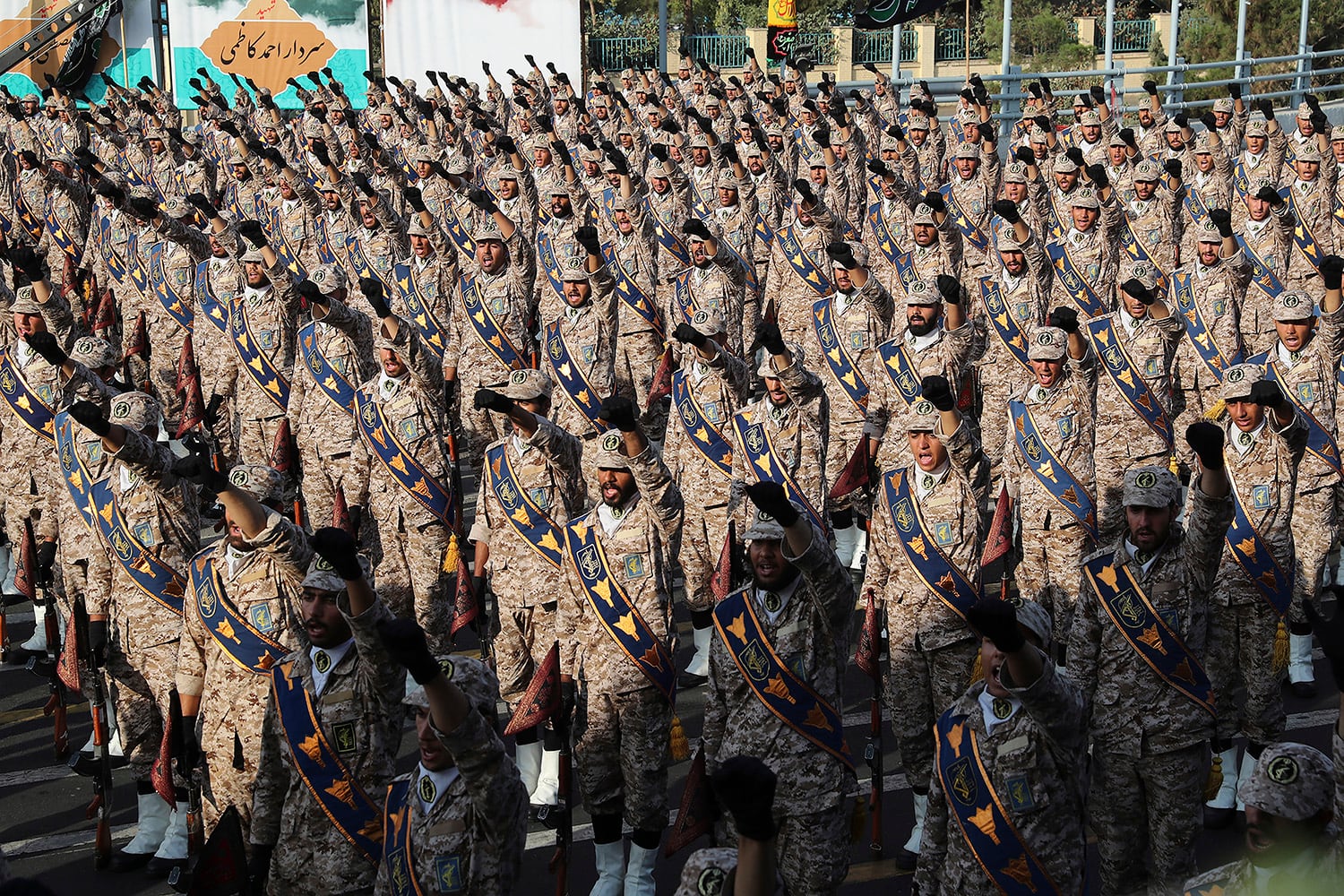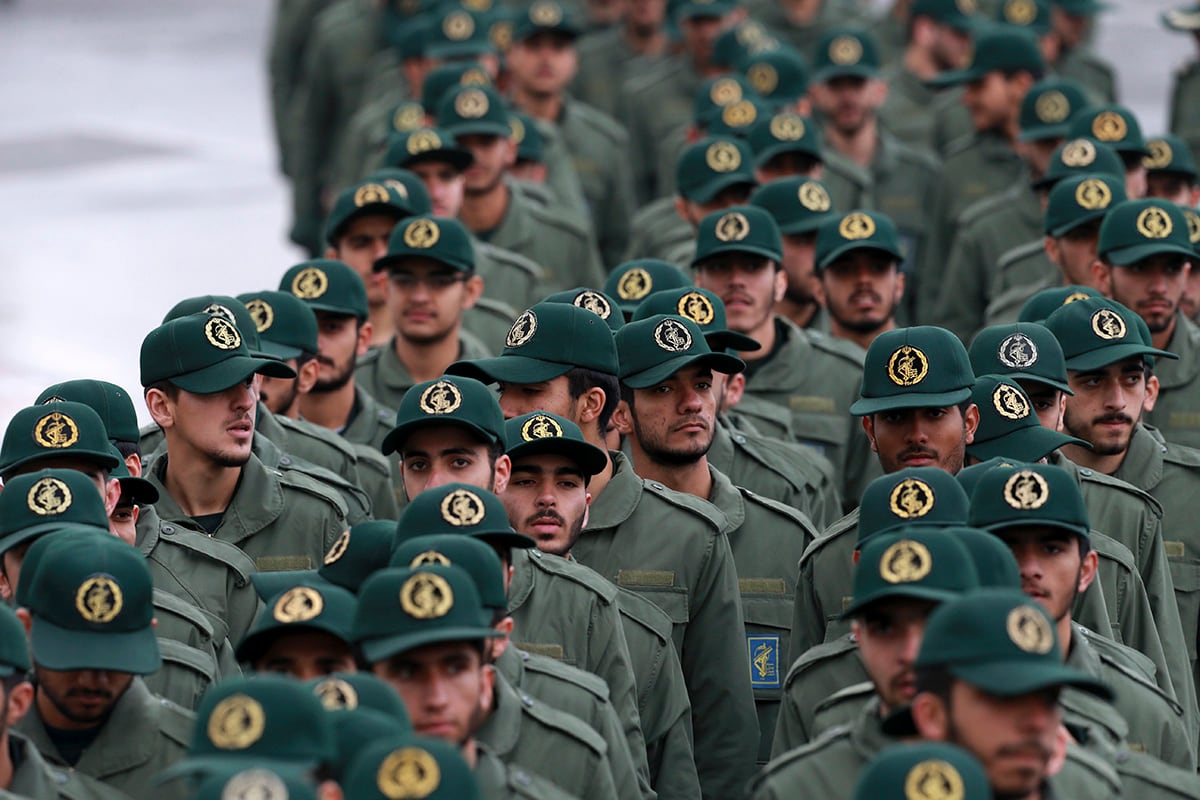The Pentagon says Iran has fired more than a dozen ballistic missiles at Iraqi bases housing U.S. troops at al-Asad and Irbil.
The Pentagon said it was working on a battle damage assessment. There have been no reported U.S. casualties, according to two U.S. sources with direct knowledge of actions on the ground.
“At approximately 5:30 p.m. (EST) on January 7, Iran launched more than a dozen ballistic missiles against U.S. military and coalition forces in Iraq. It is clear that these missiles were launched from Iran and targeted at least two Iraqi military bases hosting U.S. military and coalition personnel at Al-Assad and Irbil,” the Pentagon said in an emailed statement Tuesday.
A statement from Iran said the “fierce revenge by the Revolutionary Guards has begun.”
RELATED

Iran claimed it had fired dozens of ballistic missiles at the Iraqi base housing coalition troops at al-Asad, according to Iran state-run media.
“This morning, courageous fighters of the IRGC’s [Islamic Revolutionary Guard Corps] Air Force launched a successful operation called Operation Martyr Soleimani under the code “Ya Zahra” by firing dozens of ground-to-ground missiles, occupying the air base of the terrorist army and the American invaders at the 'Ain al-Assad base" Iran state-run media Iranian Students News Agency reported.
White House press secretary Stephanie Grisham said Tuesday night: “The President has been briefed and is monitoring the situation closely and consulting with his national security team.”
Media reports placed Secretary of Defense Mark Esper, Chairman of the Joint Chiefs of Staff Gen. Mark Milley and other top leaders at the White House Tuesday night, but it now appears both men have left the building; Trump was reportedly considering an address to the nation, but that now appears to be off as well.
A U.S. defense official told Military Times that Iran shot 15 missiles at Iraqi bases housing US troops from inside Iran Tuesday night —10 missiles hit al-Asad airbase, one missile hit Erbil International Airport in in the north and missiles failed in flight.
Another official said U.S. Central Command was monitoring the situation but could not confirm of Iran fired ballistic missiles at the bases housing coalition troops.
A source with direct knowledge of events on the ground says that three incoming missiles were knocked down by Patriot batteries at the U.S. base in Irbil.
The number of U.S. troops stationed at Irbil and al-Asad is unknown, but both bases are known to house U.S. commandos. The al-Asad base also houses some U.S. aviation assets. U.S. Central Command and the Pentagon have not confirmed if there are any American casualties.

“In recent days and in response to Iranian threats and actions, the Department of Defense has taken all appropriate measures to safeguard our personnel and partners. These bases have been on high alert due to indications that the Iranian regime planned to attack our forces and interests in the region," the Pentagon said.
There were unconfirmed rumors on social media of a rocket attack near Taji, Iraq.
A defense official, speaking on background late Tuesday, said that despite reports that Taji, Iraq, was also hit with rocket fire, the defense official said he was “not aware” of any attacks on that base.
In addition to meeting with President Donald Trump, Esper met with the Joint Chiefs of Staff and other top leaders in the Pentagon over the course of the evening. Esper also made a series of phone calls to “senior” congressional members, as well as joining Pentagon officials in calling “regional and NATO allies” to “get their input and their feedback,” according to the defense official on background.
The IRGC warned the U.S. not to retaliate.
“We are warning all American allies, who gave their bases to its terrorist army, that any territory that is the starting point of aggressive acts against Iran will be targeted,” the Guard said.
RELATED

Iranian military officials and political elites have called for retaliation for the U.S. airstrike that killed revered Iranian Quds Force commander Gen. Qassem Soleimani.
Iran’s attack against American troops was a major escalation, said Phillip Smyth, a research fellow with the Washington Institute.
“Launching a ballistic missile from Iran at an American target is quite the signal to send. This may just be one of a number of different responses that the Iranians engage in,” Smyth said.
It’s unknown at this time what type of ballistic missile was fired by Iran. Iran has a vast array of missiles, with some capable of hitting Israel and Eastern Europe.
The Shahab 1 and Qiam missiles boast ranges of 300 km and 800 km respectively, and may have been in range to strike the Iraqi bases.
“As we evaluate the situation and our response, we will take all necessary measures to protect and defend U.S. personnel, partners, and allies in the region,” the Pentagon said.
Amid reports that Iran had put air force assets into the sky, the Federal Aviation Administration issued an order for all U.S. carriers and registered aircraft to avoid operating in the airspace over Iraq, Iran and the waters of the Persian Gulf and the Gulf of Oman.
This story is breaking and Military Times will update the story as more information is available. The Associated Press contributed to this story.
Shawn Snow is the senior reporter for Marine Corps Times and a Marine Corps veteran.
Howard Altman is an award-winning editor and reporter who was previously the military reporter for the Tampa Bay Times and before that the Tampa Tribune, where he covered USCENTCOM, USSOCOM and SOF writ large among many other topics.
Kyle Rempfer was an editor and reporter who has covered combat operations, criminal cases, foreign military assistance and training accidents. Before entering journalism, Kyle served in U.S. Air Force Special Tactics and deployed in 2014 to Paktika Province, Afghanistan, and Baghdad, Iraq.
Aaron Mehta was deputy editor and senior Pentagon correspondent for Defense News, covering policy, strategy and acquisition at the highest levels of the Defense Department and its international partners.








